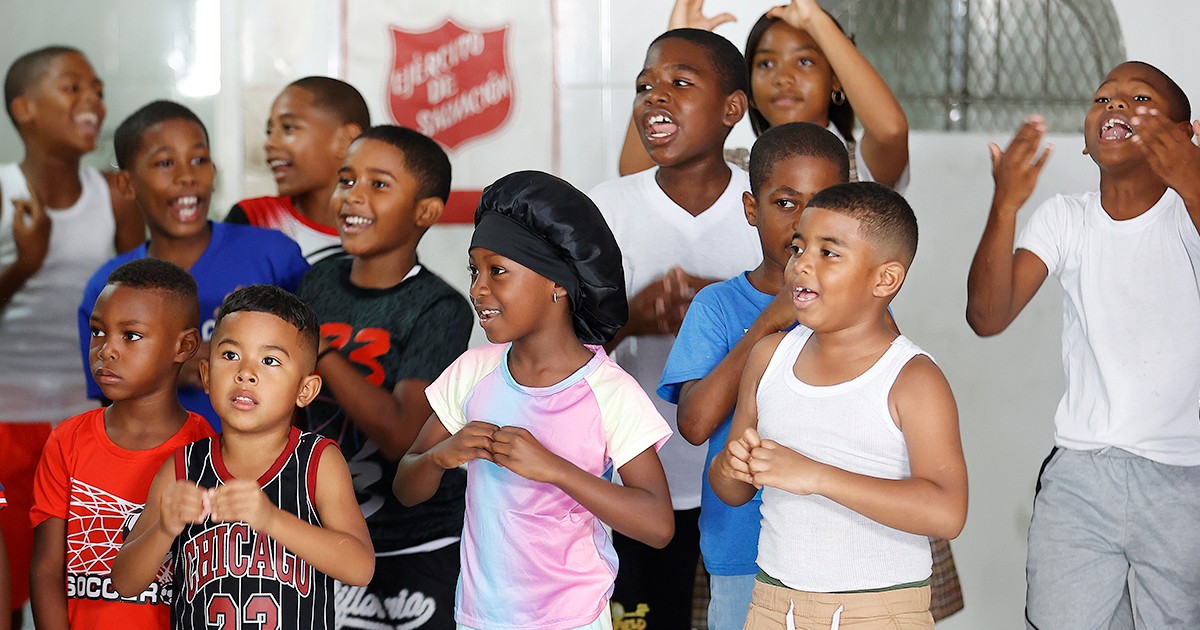 Hunched over the wheel of our minivan, my wife beside me, we gingerly weave our way through the crowded streets of downtown Toronto. It is past mid-December and Christmas is only days away. Cars line both sides of most streets. Even the back alleys are crowded. Shoppers wait impatiently at the traffic lights, their heavy bags weighing them down.
Hunched over the wheel of our minivan, my wife beside me, we gingerly weave our way through the crowded streets of downtown Toronto. It is past mid-December and Christmas is only days away. Cars line both sides of most streets. Even the back alleys are crowded. Shoppers wait impatiently at the traffic lights, their heavy bags weighing them down.
In the back of our minivan are three large green garbage bags, not unlike those belonging to the Grinch who stole Christmas. They are the heavy industrial type used by landscapers to collect fallen leaves. And, like the Grinch's giant green bag, they are also stuffed with toys. But we haven't stolen them. They have come from The Salvation Army's toy depot. We are looking for a family to give them to. Not just any family, but a family who will spend this Christmas a thousand miles from home.
The red brick building coming up on our right seems less cold than most in the city's core. The sign near the door reminds me of hamburgers, fries and family fun. It reads Ronald McDonald House. I think of the corny clown in the mustard-and-ketchup-coloured jumpsuit with his blazing red hair and I-Love-Lucy overdone-lipstick smile. For the moment I almost chuckle, but then I remember what this really is: a shelter for the families of seriously ill children. Located just a few blocks from Toronto's Hospital for Sick Children (SickKids), the hostel is a “home away from home” where families from out of town can stay while their children are receiving treatment.
For several weeks my wife and I had been visiting Kim, a young teenager from out of the province. This was her second trip to the hospital, paid for largely by donations from friends and neighbours. She had received her second transplanted heart. At 16, her mind was sharp and alert and her dreams those of a typical teenage girl. Her body, however, was so small that she looked more like a 10-year-old. Her mom stayed in the shelter and walked every day to the hospital. With her was her eight-year-old son, a mischievous lad barely able to comprehend the seriousness of the situation. He went to school right in the hospital while his mom stayed with his sister.
So it was that this family prepared for Christmas. Toys were not on their Christmas list. The best they could hope for was a small gift each from their allowances. “Mom, I guess we won't have a Christmas tree this year,” said the little boy one day. “We can put our stockings under the table.”
As my wife and I became aware of the family's need, we invited them to come celebrate Christmas with us. They were reluctant to leave the hospital neighbourhood for fear that Kim would suddenly get worse and they would not be there. We decided that if we could not bring them home for Christmas, perhaps we could bring Christmas to them. And that is what we were doing on this cold December day.
As I pull up beside the front door of the shelter, Sheila is waiting for us. We had called earlier to say we were coming with a few things for Christmas. My wife steps out of the van and gives her a big hug. She forces a smile. I open the back gate of the van and lift out a large green bag and place it at Sheila's feet. Her smile of thanks becomes real. Then I pull out another bag. Her smile grows bigger. My wife puts her arm around her. I reach into the van again for another bag. Sheila's eyes grow huge. “Wow!” she says, “Christmas in a bag!” But I have one last surprise. I reach back into the van and pull out a long cardboard box. Inside is a new, never-opened, five-foot Christmas tree. Sheila is speechless.
We help her carry the gifts inside the shelter. The children literally jump with excitement, but Mom will not allow them to look in the bags; it would be a surprise for Christmas morning. The boy wants to put up the tree right away. After warm hugs all around, we leave.
When Christmas Day comes, we spend it with our family, content in knowing that downtown in the Ronald McDonald House there is a family, a thousand miles from their home, who are waking up to the glow of a Christmas tree and Christmas presents underneath. As we share our Christmas dinner we know that in the SickKids Hospital, there is a little girl opening her gifts with her mom and her little brother. I think of the thousands of people who donate toys to the Army and say to myself, if they only knew how much good they do and how much their gifts are appreciated.
 Major Fred Ash is the corps officer at Burlington Community Church, Ont.
Major Fred Ash is the corps officer at Burlington Community Church, Ont.









Leave a Comment